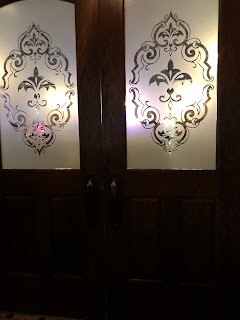This Week's Topic: Author Websites Do's and Don'ts
We all know by now that authors need a home on the web that is theirs and not a social network's, right? Is it enough to have just a FaceBook page? No. A TickTok addy? No. Authors must have their own web destination. I'm in the camp that says authors need to have their own domain name too. Ideally, the domain name is the same as the author name/pen name.
 |
| KAKrantz.com Home Page |
The whole point of a website for an author is so readers can find a listing of your works. Past, present, upcoming. Thus, at the bare minimum, an author should have:
- their name
- and any related pen names
- their bio
- this usually includes an author headshot, short and/or long bio
- their works
- listed by genre, by series, by reading order
- should also include links to buy the works
- nice to provide a printable list
- and a means of contact
- whether it's a form-driven contact page that sends to the author's preferred email address,
- links to their social media pages
- links to their discord, private community, etc
- links to podcasts
Ought to haves, but not have-to-haves:
- One-click means to subscribe to their newsletter
- Also need the privacy policy page and cookie policy page if you're collecting any information on a user such as email address
- Press packet
- Often incorporated into the About Me page, this includes author headshots/preferred images, short bio, and long bio. This is to help promotion/event organizers have the author's information at their convenience, be it for podcasts, blogs, articles, book clubs, etc.
- Where to Find Me
- If the author is touring, either virtually or IRL, a calendar of events/appearances with links to the event pages
- Series Extras
- Be it term glossaries, character guides, world maps, etc, it's nice to have a place where fans can download the extras that'll help them better enjoy the series.
- Writing Sample
- While big retailers offer a "look inside" preview of books, that's for audiences who are on their sites. Folks who came across the author's name before their work can get a sense of writing style from the sample on the author's website.
- Free Story Download
- This might be part of the author's newsletter lure (subscribe and get a free story!) or a separate short story to attract potential readers
- Sell-direct storefront
- If readers can buy books directly from the author, then those links should be on the book pages and on a unified storefront
- Other Author-Related Revenue Presence
- From freelance articles to workshops to Tarot readings to private coaching, etc., if the author has a writing-adjacent service or products, readers want to know
Now, as tempting as it is to put ALL THE THINGS on a website, clutter is an interest killer. The best websites are simple and straightforward, delivering what the reader needs. After all, the end game is BOOK SALES.
FWIW, there's a saying in web design that each click costs an additional 10% click-through rate. From a marketing standpoint, we have a "two clicks and they're gone" theory, so we try to put the buy option within two clicks of arriving at the main page.









